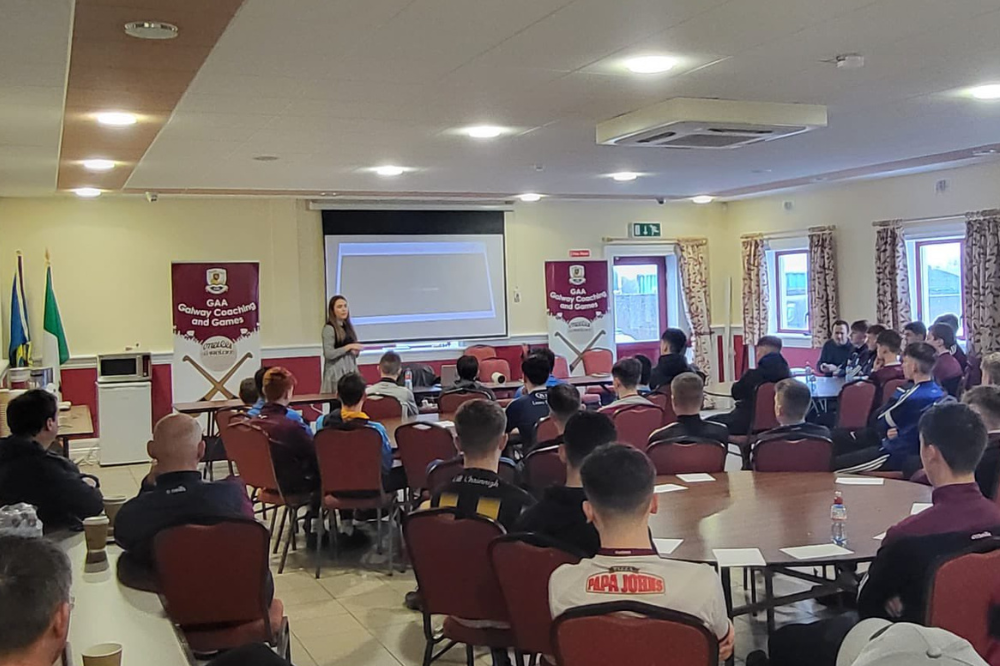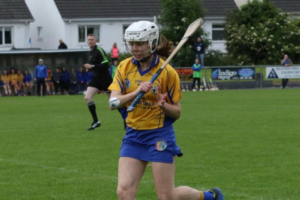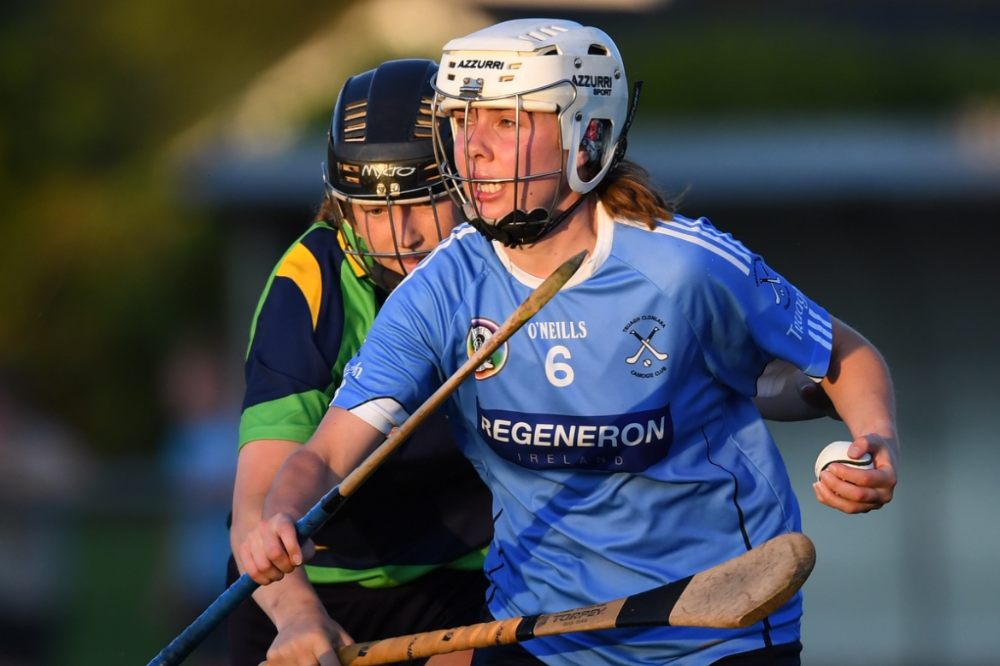Introduction
This week, MSc in Applied Sport and Exercise Psychology student Michelle Caulfield provides an insight into her studies, career and practical application of her studies in the latest instalment of our student story series.
Background and Sporting Influence
“Sport has played a key role in my life. I was an Irish dancer for many years and competed in Munster, All Ireland and World competitions until my teens. I have always played camogie for my club Truagh Clonlara and played for Clare from u16 to senior for many years. I cannot imagine life without sport and the friends, life skills and memories that I have gained as a result.”
As sports co-ordinator in the school in Limerick where she is a primary teacher, Michelle Caulfield is now in the position of passing on this love of sport. “I continue to promote, coach and inspire children especially girls to stay active and take part in exercise,” she outlines.
It was through her inter-county camogie career with Clare and working with a sports psychologist that Michelle’s interest in the area first piqued and how it could complement her physical training.
“I was always interested in the mental skills side of training and could see the benefits of doing so. It was apparent that I could train to a very high standard incorporating fitness, gym and hurling skills but that all this hard work needed to be complemented with mental skills training so that I could deal effectively with areas such as nerves, confidence or self- esteem.”

The Role of Sports Psychology
This interest in the area led to research of various courses in the area, ultimately deciding to pursue the MSc with Setanta.
“Setanta appealed to me because of the excellent course content, great feedback and the course allowed me to work and study at the same time. Many of my friends had studied with Setanta so it was a great help to ask them about their experiences with the college”, Michelle outlines.
Since beginning the programme in March 2022, Michelle outlines how her understanding of sports psychology and its role has evolved.
“Sometimes the sport psychologist can be seen as only helping a ‘problem’ athlete or solving issues within a team. However, the sport psychologist plays a key role within a multi-disciplinary team, working with coaches, athletes and parents alike. Before studying this Masters, I never considered working on the field as part of the coaching session as the sport psychologist. By working with the coaching staff and implementing skills or drills on the field to work on areas such as communication or concentration, this normalises and includes the work of the sport psychologist in the real-life setting.”

Another aspect that Michelle emphasises is the benefit of sports psychology for teenagers and youth athletes. “I have seen first-hand the great impacts of this”, she notes.
”Sport psychology can provide techniques and skills to all ages, not just the elite or professional athlete. Developing a long-term plan for clubs can provide a fantastic framework to help all members involved in the setting to transition through the club and deal effectively with challenges along the journey.”
Experience with Setanta
Michelle outlines the highlights of her experience on the MSc in Applied Sport & Exercise Psychology, including the residential weeks, learning from industry experts, networking with fellow students and practical experience gained through Setanta’s network.
“It has been a fantastic experience to date. The course is really practical and a lot of the assignments are real life case studies that you might encounter as a sport psychologist in the future. The residentials are definitely the highlight and getting the chance to meet so many different people. Getting to meet students in attendance from all different Setanta courses that have worked in a vast array of areas such as the Olympics or work in different countries such as South Africa, UK, Italy and Australia.
Theory is very important and it is complimented by the residentials by learning from lecturers David McHugh, Gerry Fitzpatrick and other sport psychologists such as Kate O’ Keeffe and Anne-Marie Kennedy as well as meeting lecturers in other areas of physiotherapy, strength and conditioning or performance coaching and seeing how you work as part of a multidisciplinary team.
Setanta are affiliated with lots of teams and organisations such as Ardscoil Ris, Galway GAA, Tipperary GAA and Connacht Rugby. This year I was lucky to work with Galway u15 and u16 hurling and football development squads aided by our course director Dr David McHugh. Some of the areas covered included staying in the present moment, competition planning and building resilience. This was an invaluable learning experience to work with players and their parents to implement techniques that may help them perform to their potential.”
Practical Application
Another standout for Michelle has been the opportunity to apply her learnings directly, through her final applied project.
“I am working on a case study based on my role with a hurling team this year. It was really insightful to work with this team and I learned so much from this experience. Based on this work, I will present my case study of implementing mental skills techniques with a team during championship. Implementing my studies into real life scenarios was excellent and I really enjoyed this role – it will help me to develop my skills and methods by reflecting on my work.
I have learned invaluable information and met incredible people along the way. This practical knowledge can be applied in my own personal life and in sport. Reach out to the college if you’d like more information as everyone is so helpful. I would be more than happy to chat to anyone considering studying the Masters in Applied Sport and Exercise Psychology with Setanta College.”
Learn more about the MSc in Applied Sport & Exercise Psychology here.


Leave A Comment